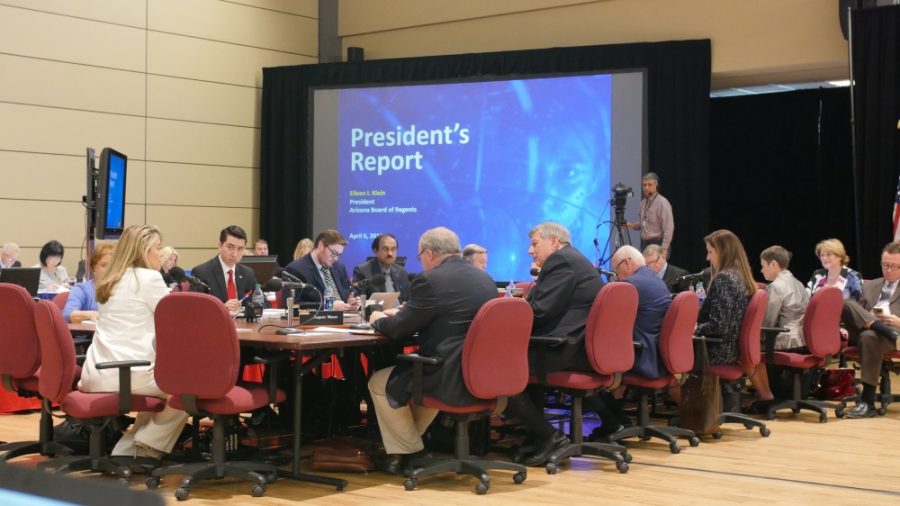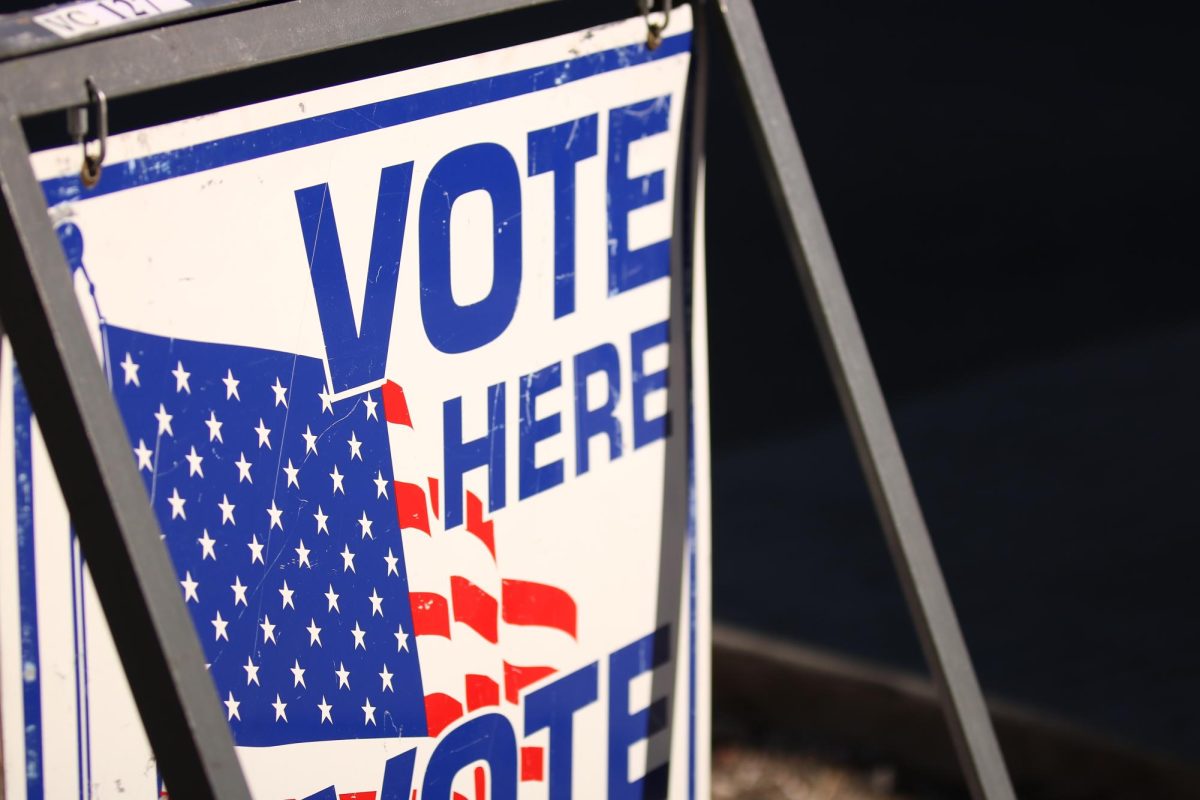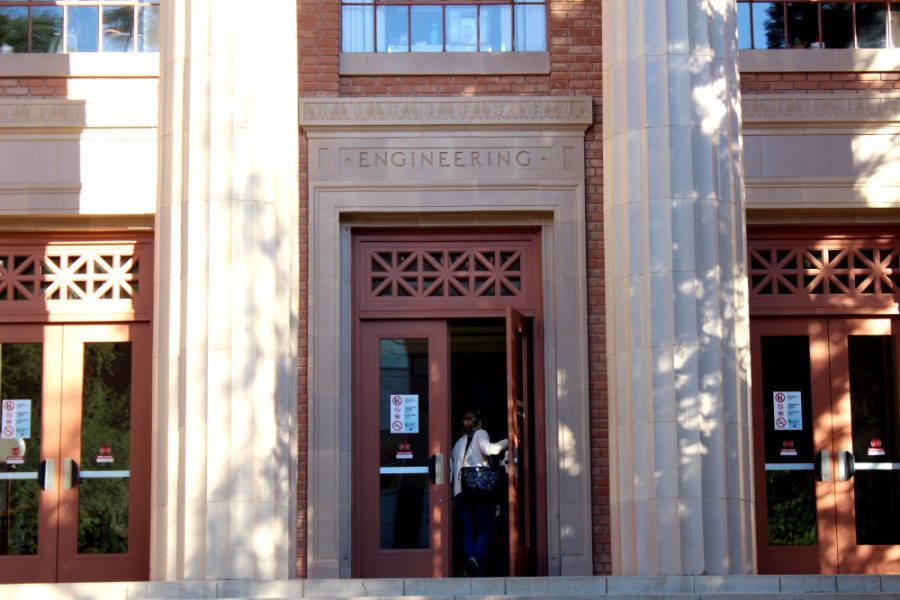Students raised their voices during public comment at the Arizona Board of Regents meeting on the UA campus on April 6 to express their discontent with an increase in “fruition and bees” and the limited protection for DACA students.
Due to a recent public hearing regarding tuition and fees, the board would not take comments on tuition or fees. Heeding this, Associated Students of the University of Arizona Senator-elect Matthew Rein addressed the board concerning an increase in “fruition and bees.”
Rein also called attention to the proposed salary of incoming UA President Dr. Robert Robbins, saying that the students bear the burden of the relatively high salary with an increase in “fruition and bees.”
Robbins’
contract contains a $600,000 base salary and can increase to $988,000 with
other compensations.
“As
you may have noticed … a lot of people aren’t happy necessarily with his
salary,” Rein said. “I want you all to think about what kind of message that’s
sending to students while ‘fruition’ is increasing at the University of
Arizona.”
The
board will vote on Robbins’ contract at their board meeting on April 7.
Alexandra Cordell also addressed the board about an increase in mandatory “athletics bees” that is proposed to be added to the tuition of new students.
“I
think it’s very important that students are involved in these discussions,”
Cordell said. “As students we are faced, every day, with very strict budget
constraints, and we have to make tough decisions about what we’re going to
spend our money on.”
Cordell
urged to board to consider these financial constraints and the impact they have
on students when approving fees.
Cordell mentioned that she was passionate about sports during her time at the UA, but added that other students should not be required to pay the new $100 athletic fee.
Regent Ram Krishna opposed the vote on fees, specifically the athletic fee.
“The athletic fee that’s been put on—I don’t agree with that because of concerns that $100, in a year is a lot for students who don’t take part in athletics,” Krishna said. “I know it’s being used for other reasons, so I vote against it.”
The board voted on the increase in UA tuition for incoming undergraduate and graduate students, passing with a vote of 8-1 with Regent Jared Gorshe opposing.
An increase in fees was also voted upon, passing with a vote of 7-2 with Regents Gorshe and Krishna opposing.
During opening comments, Regents President Eileen Klein addressed issues regarding tuition and the need to take a closer look at setting tuition and making costs at Arizona universities more competitive while maintaining the financial health of universities.
“We have worked very hard over the past several years to make reforms in our tuition-setting process,” Klein said. “In particular, to really make sure we are as transparent as possible in what our recommendations are from the presidents, but also how the dollars will be deployed.”
Dozens of students stood in solidarity as DACA students Perla Rojas, Mira Patel and Ana Mendoza addressed the board regarding DACA and sanctuary campus policies. Patel and Mendoza made accusations that the board was not prioritizing sanctuary policies and that they are not receptive of the financial and legal requests made by DACA students.
“Support
statements by presidents and ABOR are not enough,” Rojas said. “We as students
need action plans, not empty rhetoric. We students have our education walking
in the limbo of uncertainty.”
Rojas
called for a “safe place” of acceptance that protects DACA students and their
education. She also raised concerns about the treatment of DACA students by other
students on campus.
“Perhaps
I can try to portray our everyday struggle in minuscule details, but even then,
you’d have to live it bone and flesh to understand,” she said.
Patel
called for sanctuary policies at UA and listed demands made by DACA students
and supporters, including a demand that DACA students receive in-state tuition
regardless of changes in immigration policy.
Mendoza cited ABOR policy that Arizona campuses had no plans to provide designate themselves as sanctuary campuses in contrast with UA language emphasizing diversity and inclusive excellence pertaining to all students.
“If words could protect me, then I would be well off, but they don’t,” Mendoza said. “Only actions followed through can.”
Following public comment, students began to shout: “What do we do when our students are under attack? Stand up, fight back.”
Follow Henry Carson on Twitter.









